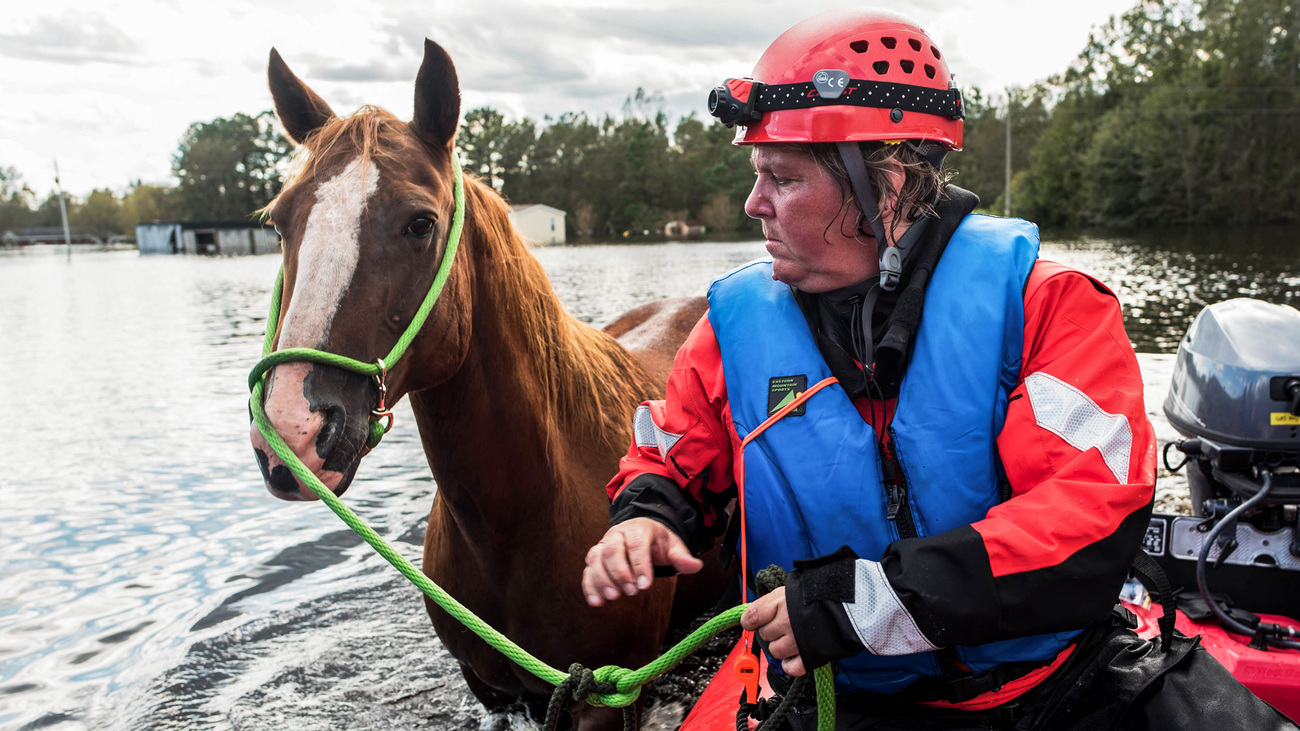Rescuing animals during disasters - United States
In a disaster, animals can’t ask for helpas animals share our burdens, they too must be included in disaster planning
as animals share our burdens, they too must be included in disaster planning

A few years ago, my wife and I moved from Washington, D.C. to Minneapolis, Minnesota, not least because we were concerned about how climate change would impact the Atlantic seaboard and low-lying cities like our nation’s beautiful capital. In essence, we wanted to build a life in a place that could be better positioned to avoid the worst impacts of these global shifts that are becoming more serious and more frequent.
But what’s that line about the best laid plans of mice and men?
Minnesota is a wonderful place to live, but at last count, our new home state has already been hit by over 50 tornadoes this year – double their annual average – and I’ve spent anxious hours in the basement with family and our dog, while the sky turned eerie and sirens wailed.
As a result, we’ve learned firsthand the truth of the adage “All disasters are local.”
Disasters are increasing in frequency and strength
2020 has been the stage to seemingly unending environmental upheaval. There are five million acres of smoldering wildfires on the West Coast. Meteorologists have already reached the end of the alphabet and are resorting to Greek letters to label events, with Hurricane Delta being the latest named storm to lash the Gulf Coast just this past weekend. The COVID-19 pandemic is itself a natural disaster of sorts, originating via zoonotic (wildlife-to-human) disease transmission.
The human cost of these events is staggering, but there is also another population that suffers with us and shares these very same burdens: Animals.
However we categorize them, pets, wildlife, livestock, and other animals are impacted by natural disasters just like we are. When animals are separated from owners and families, it can cause severe anxiety on both sides; many owners find it unthinkable to flee without their animal companions, often jeopardizing their own lives by refusing to evacuate. And animals that are under high stress, or possibly contaminated or infected, can make dangerous situations even more precarious for relief workers.
Animals play an immensely important role culturally, socially, and of course, economically. Beyond that, they are worthy of protection in their own right.
IFAW believes that society owes these creatures the duty of care, meaning that it is imperative to plan for, adequately resource, and implement animal rescue and rehabilitation plans in the case of catastrophe.
Preparing your family for a disaster
In IFAW’s latest report, Beyond Rescue: Animals in Disasters, case studies lay out the threats and delve into solutions, and do so within the context of multiple disaster situations that IFAW has itself responded to with its Disaster Response and Risk Reduction (DRRR) team. It is our hope that policymakers and emergency preparedness agencies find it a thought-provoking and useful document, encouraging every reader to ask themselves “What’s my plan if disaster strikes? What will my animals need?”
The answers to those questions have to come before you need them. If there is one thing we want you to take away from this report, it is to Prepare, Prepare, Prepare.
You may live in Arlington or Fresno or somewhere else a thousand miles from where I live in Minneapolis. Regardless, there’s a good chance that you’ve experienced – or will experience – a natural disaster ‘tailor-made’ for your area, too.
IFAW’s DRRR team stands at the ready to help you understand and navigate the complex task of preparation. To date, IFAW and its local partners have rescued, treated, transported, or sheltered over 275,000 animals since our DRRR work began twenty years ago.
With IFAW’s decades of experience and a deep understanding of the critical need to incorporate animals into the disaster planning and response process, our fellow creatures will forever have a steady ally to weather the storm.
-Peter LaFontaine, IFAW Contributor
Related content
Our work can’t get done without you. Please give what you can to help animals thrive.